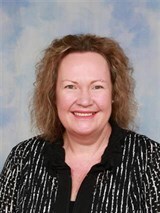Principal's Corner
There is a saying that supposedly came down to us from the ancient Greeks that goes something like this: “Tell me whom you admire and I’ll tell you who you are”. The ancient Greeks ensured that their people had suitable models to admire by focussing on the deeds of people such as Hercules, Ulysses, Archilles, Perseus and turning them into heroes.
We might understand heroes to be symbols for us, of all the qualities we would like to possess and all the ambitions we would like to satisfy. Because the ideals to which we aspire do much to determine the ways in which we behave, our choice of heroes is of great importance.
Our children’s choice of heroes usually follows a fairly predictable pattern. Young children often choose their parents as heroes because parents are their immediate providers and caretakers. As children grow and begin to question their parents’ influence, they choose peers as heroes, often someone close to their own age. Older teens usually admire people who can think for themselves and act individually.
Nowadays, the media have made it all too easy for us and our children, to confuse celebrity with excellence. In a celebrity age, we need to caution our young people about worshipping fame and beauty. Celebrities can become heroes to our children mainly because they are attractive, rich and famous and not for any redeeming qualities they may have.
Today’s popular culture worships the “antihero”, as some of today’s entertainers, athletes and other popular “icons” exemplify everything that is unheroic. These antiheroes encourage unheroic values such as selfishness, dishonesty, disrespect, irresponsibility, greed and violence – hardly the types of values we want to see expressed by our children; we need to impress upon our children how unheroic such behaviours are.
So, what do we tell our children? We can start out by telling our children what a difference people of courage, noble qualities and genius have made to our world. We can tell them that these heroes are people like us, that heroes too are human and so what was possible for them is possible for us. They stumbled, wavered, even made fools of themselves, but they rose and accomplished something of great importance.
Heroes instruct us by rising above the negative aspects of their lives and triumphing over their weaknesses. Heroes inspire us and push us towards our better self. Childhood is the time when the influence of positive role models can be most decisive. Children should see in heroes what they yearn to see in themselves: the ability to overcome weakness, fear or insecurity and to be brave, courageous and kind.
Being a hero is the sum of life, not just an event that happens; mistakes we make are just as important as the successes if we learn from them.
Helen Keller, who was blind for most of her life, has these encouraging words for us: “I long to accomplish great and noble tasks, but it is my chief duty to accomplish humble tasks as though they were great and noble. The world is moved along not only by the mighty shoves of its heroes, but also by the aggregate of the tiny pushes of each honest person.”
Best Wishes
Kath


